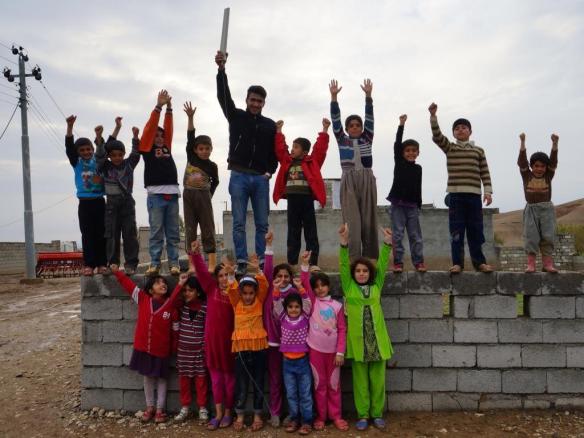
Team Antenna in Lajan Village, Kurdistan, Iraq, cheer a green light on their modem! The group is participating in Touchable Earth, the first digital world book for kids where kids in each place explain all the facts about it. The Christopher Stevens Youth Network will support efforts like this in 20 countries.
[Thanking @craignewmark for mention of this post on @HuffPostTech]
One day, the “globally connected classroom” will simply be known as “the classroom.”
January 18th is Internet Freedom Day, and we’re celebrating the Connect All Schools Consortium. The Consortium is a leading the effort to move our country closer to the goal that every school in the United States have global connections so that every student have an international experience to gain critical skills, knowledge, and hope for a prosperous and secure future.
Fifteen years ago, Dr. Ed Gragert saw the Internet’s potential for teachers and students:
The power of the Internet is in its human connective potential. By connecting us as global citizens and local community members, we learn better. We open ourselves to new ideas and in turn shape the thinking of others through diverse input. We and our students become empowered to apply learning within our societies and in the global community in ways that can impact powerfully and positively on lives and environments.
In short, the Internet has the potential for creating an education of hope.
If we want to nurture a critical mass of young people who trust and respect each other, we need an Internet that fosters freedom of expression. If we want to empower future leaders to work together towards a healthier and safer planet, we need an Internet that supports an open and fair exchange of ideas. If we want our efforts to promote peace and conflict resolution through programs like the new Christopher Stevens Youth Network, we need an Internet that encourages empathy, meaningful collaboration, and an education of hope.
If we want every young person to believe that his or her voice matters, we need Internet freedom.
